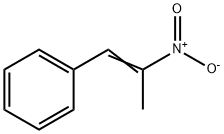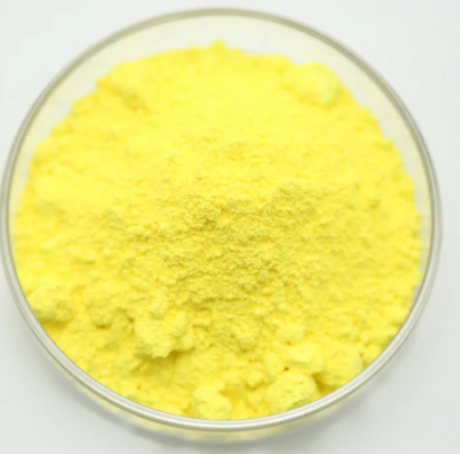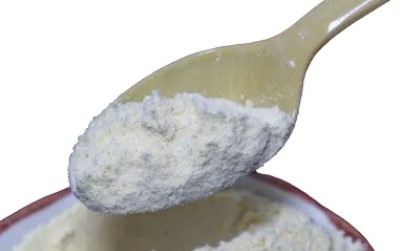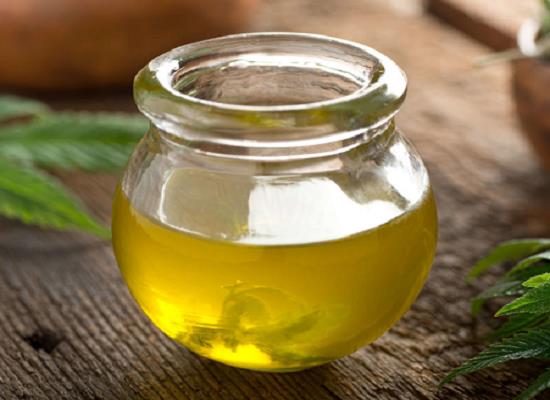1-Phenyl-2-nitropropene: properties, applications and safety
General Description
1-Phenyl-2-nitropropene is a stable compound with both aromatic and alkyl substituents that can act as a Michael acceptor, making it useful in organic synthesis and medicinal chemistry. It has potential applications in pharmaceutical synthesis, herbicidal properties, and antibacterial activities. However, it is important to handle it with caution due to its classification as Harmful and irritant effects. Its toxicity is still being studied, and appropriate storage practices should be followed to maintain its stability.
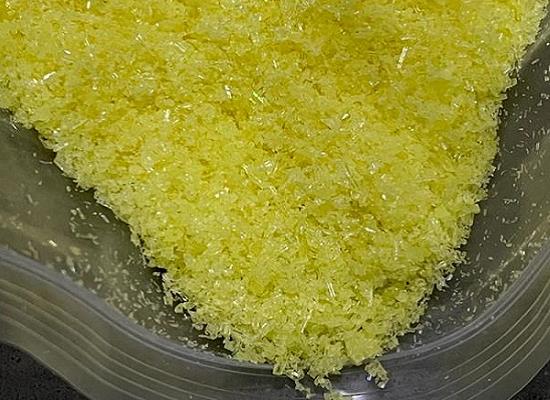
Figure 1. 1-Phenyl-2-nitropropene
Properties
1-Phenyl-2-nitropropene is a chemical compound with the formula C9H9NO2 and a colorless to yellow liquid with a characteristic odor. It is an alkyl nitro compound with both aromatic and alkyl substituents. Structurally, it is a derivative of acrylonitrile, incorporating a phenyl group and a nitro group. The double bond between carbon atoms 2 and 3 is conjugated with the nitro group, resulting in a highly polar and electron-rich system. 1-Phenyl-2-nitropropene is a stable compound at room temperature and pressure, provided it is protected from oxygen. One of the significant properties of 1-phenyl-2-nitropropene is its ability to act as a Michael acceptor, which means it can react with various nucleophiles such as alcohols, amines, and thiols to form new carbon-nitrogen bonds. This reactivity is due to the electron-rich nature of the double bond, which is polarized by the adjacent electron-withdrawing nitro group. 1-Phenyl-2-nitropropene has also shown potential as an anti-tumor agent and bactericide, with greater activity against Gram-positive bacteria compared to Gram-negative bacteria. In conclusion, 1-Phenyl-2-nitropropene is a unique and reactive intermediate that finds application in organic synthesis and medicinal chemistry. 1
Applications
1-Phenyl-2-nitropropene has various applications in the fields of pharmaceutical synthesis, herbicidal properties, and antibacterial activities. In pharmaceutical synthesis, P2NP plays a significant role in the production of certain medications such as Adderall. Adderall is a widely prescribed drug used to treat attention deficit hyperactivity disorder (ADHD) and narcolepsy. P2NP serves as an intermediate compound in the synthesis of amphetamines, including Adderall. Through a reduction reaction, P2NP can be converted into the corresponding amphetamine, which is a key component in the formulation of drugs like Adderall. Apart from its pharmaceutical applications, 1-Phenyl-2-nitropropene also exhibits herbicidal properties. It is considered a derivative of styrene, which is known for its herbicidal effects. P2NP can be utilized in the formulation of herbicides to control unwanted plant growth and weeds. Its herbicidal activity makes it a valuable component in agricultural practices where weed management is crucial. Furthermore, 1-Phenyl-2-nitropropene demonstrates antibacterial activities. It has been studied for its potential antimicrobial properties against various bacterial strains. These properties make P2NP a promising candidate in the development of novel antibacterial agents or as an additive in existing antibacterial formulations. Overall, 1-Phenyl-2-nitropropene finds applications in pharmaceutical synthesis, contributing to the production of medications like Adderall. Additionally, it possesses herbicidal properties, making it useful in weed control, and exhibits antibacterial activities, suggesting its potential as an antimicrobial agent. 2
Safety
1-Phenyl-2-nitropropene has certain safety considerations that should be taken into account. According to available data, it is labeled as Harmful by the Globally Harmonized System of Classification and Labelling of Chemicals. 1-Phenyl-2-nitropropene is known to be an irritant, so it is important to avoid breathing in its fumes and direct contact with the skin and eyes. The median lethal dose (LD50) for oral exposure in rats is reported to be greater than 500 mg/kg, while in mice it is greater than 1176 mg/kg. These values indicate the dosage at which 50% of the tested animals would experience lethality. It is worth noting that the toxicological properties of P2NP have not been extensively studied, and thus its full range of effects is not yet well-understood. In terms of storage, P2NP should be kept in a cool environment between 2°C to 8°C. It is also important to store it away from strong oxidizing agents. Higher temperatures can cause the compound to become less stable and degrade over time. In summary, precautions must be taken when handling 1-Phenyl-2-nitropropene due to its classification as Harmful and its potential irritant effects. The precise toxicity of 1-Phenyl-2-nitropropene is still being investigated, and proper storage practices should be followed to maintain its stability. 3
Reference
1. Xavier S, Periandy S. Spectroscopic (FT-IR, FT-Raman, UV and NMR) investigation on 1-phenyl-2-nitropropene by quantum computational calculations. Spectrochim Acta A Mol Biomol Spectrosc. 2015;149:216-230.
2. Green List – List of Psychotropic Substances Under International Control (International Narcotics Control Board (INCB)).
3. 1-Phenyl-2-Nitropropene (P2NP): Synthesis, Uses, and Legality. Safrole.
You may like
Related articles And Qustion
See also
Lastest Price from 1-Phenyl-2-nitropropene manufacturers
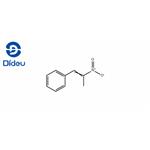
US $0.00/kg2025-05-15
- CAS:
- 705-60-2
- Min. Order:
- 1kg
- Purity:
- 99%
- Supply Ability:
- 10000KGS

US $6.00/kg2025-04-21
- CAS:
- 705-60-2
- Min. Order:
- 1kg
- Purity:
- 99%
- Supply Ability:
- 2000KG/Month
